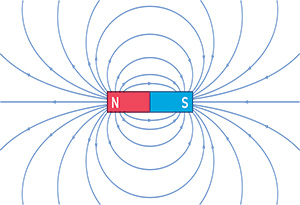Magnetic Energy vs. Traditional Energy Sources: Pros and Cons

Listen to this Article
Magnetic energy, also known as magnetism, is a fundamental force of nature that has been harnessed for various applications. In the context of energy production, magnetic energy refers to the use of magnets and magnetic fields to generate electricity. This concept is rooted in electromagnetic induction, where a changing magnetic field induces an electric current in a conductor.
Pros of Magnetic Energy
- Renewable and Clean: One of the most significant advantages of magnetic energy is its renewable nature. Unlike fossil fuels, which deplete over time, magnetic energy relies on the inherent properties of magnets and can be harnessed indefinitely. Additionally, it produces no greenhouse gas emissions, contributing to a cleaner and healthier environment.
- Abundant Resources: The Earth is abundant with magnetic materials such as iron, nickel, and cobalt. These resources can be readily sourced, making magnetic energy a potentially accessible and widespread solution. Unlike traditional energy sources, which often require extensive mining or drilling, magnetic energy taps into existing materials, reducing the environmental impact of extraction.
- Lower Maintenance: Magnetic energy systems generally require less maintenance compared to traditional energy sources. Unlike complex mechanical systems, magnetic generators have fewer moving parts, reducing the risk of wear and tear. This lower maintenance requirement can lead to cost savings and increased reliability in the long run.
Cons of Magnetic Energy
- Low Energy Density: Magnetic energy systems face a challenge in terms of energy density. Magnetic fields typically have a lower energy density compared to fossil fuels, limiting the amount of power that can be generated. While advancements in magnetic energy technology are being made, it needs to catch up to the energy output of traditional sources like coal or natural gas.
- High Initial Costs: Magnetic energy technologies are still in the early stages of development, which often translates into higher initial costs. Research, development, and manufacturing expenses contribute to the relatively higher price of magnetic energy systems. However, as technology advances and economies of scale come into play, these costs are expected to decrease.
- Grid Integration: The integration of magnetic energy into existing power grids poses a challenge due to the intermittent nature of the energy source. Unlike traditional power plants that can provide a steady and predictable flow of electricity, magnetic energy systems are subject to variations in the strength of magnetic fields. Developing efficient energy storage solutions and upgrading grid infrastructure is essential for seamless integration.
Magnetic energy holds significant promise as a renewable and clean energy source, offering several advantages over traditional energy sources. Its renewable nature, abundance of resources, and lower maintenance requirements make it an attractive option for a sustainable energy future. However, challenges such as low energy density, high initial costs, and grid integration issues need to be addressed for widespread adoption.
While magnetic energy is still in the early stages of development, ongoing research, and technological advancements are expected to overcome these challenges. As we continue to explore alternative energy sources, magnetic energy could play a crucial role in diversifying our energy mix and reducing our dependence on fossil fuels, ultimately leading us toward a more sustainable and greener world.
